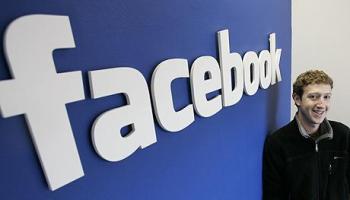The decision by Hewlett-Packard to terminate its tablet and smartphone business and sell the software that supported it, has resulted in a great deal of industry debate.
However at least one research firm believes HP should sell webOS to Facebook. That’s right – the world’s leading social network with over 750 million users.
Jefferies & Co analyst Peter Misek suggested that after surveying the mobile landscape, Facebook is the best fit to buy webOS given its future ambitions to extend its brand across media and content.
Content Battle
“Due to Facebook’s scale, developer community, and movement toward media (e.g., music) and communications (Messenger), it is possible that an acquisition of an OS asset like this could be a good option,” Misek wrote in a research note 15 September.
Misek, who is not the first to suggest this move, said webOS would be attractive to the social network for several reasons:
- Good, sound web assets will lead to more ad dollars, which Facebook desires to compete with Google, Microsoft and others for money. Jefferies estimates online’s share of US ad spend to increase from 15 percent in 2010 to 20 percent in 2015.
- Rivals Apple, Google and Amazon are competing to build cloud services, including music, books and video. Facebook could use webOS, which plays well with the cloud, as a singular, integrated platform to promote its network.
- Apple will launch an Internet-based television next year, opening the door to a new ecosystem of selling subscription services, ad revenues and Web-enabled TVs. This is something Google has failed to do with Google TV.
- Finally, Misek believes carriers and OEMs want a third viable smartphone ecosystem, particularly with uncertainty swirling around Android’s patent-litigation problems. While Misek noted, Microsoft Windows Phone 7 is the front-runner, Microsoft’s mobile strategy has been poorly executed thus far.
“An acquisition of WebOS could allow another player to take advantage of any stumbles,” Misek wrote, adding that inquiries revealed developers would support a potential Facebook OS.
The Downside
There are some problems with Misek’s theory. While Facebook is certainly interested in bulking up its media, communications and ad assets, history shows the company has stopped short of buying access to such content.
 Facebook integrates heavily with INQ Mobile, HTC and others on so-called “Facebook phones,” and it has an even deeper integration with Skype for voice over IP calling capabilities and social connections between both platforms.
Facebook integrates heavily with INQ Mobile, HTC and others on so-called “Facebook phones,” and it has an even deeper integration with Skype for voice over IP calling capabilities and social connections between both platforms.
Save for some piece acquisitions, Facebook prefers to build its software in-house. The company has stopped short of building out its own OS to date and has never shown an interest in acquiring such an expansive piece part and putting it in front of consumers.
Then again, a bow-tied, proven OS, such as webOS, offers the company some interesting possibilities. With webOS, Facebook could partner with HTC and others to build real Facebook phones and even tablets.
Why not? The company certainly has the consumer cachet and brand HP lacks, and could prove a formidable challenge to Apple’s iPhone and iPad, and Android handsets and tablets.
If Facebook does make a play for webOS and gets it, Misek said this scenario would be most problematic for Research in Motion and Microsoft Windows 8 because it would mean there would be another strong player competing for the third mobile OS horse behind Apple iOS and Google’s Android.
Misek expects Facebook’s purchase of webOS would have minimal impact on Apple and Google.
“Over time, Android share gains could decelerate (currently 48 percent) due to a new ecosystem that exhibits less vertical integration aspiration, but we believe Android will remain the share leader due to OEM/developer stickiness and Google’s continued innovation,” Misek said.




